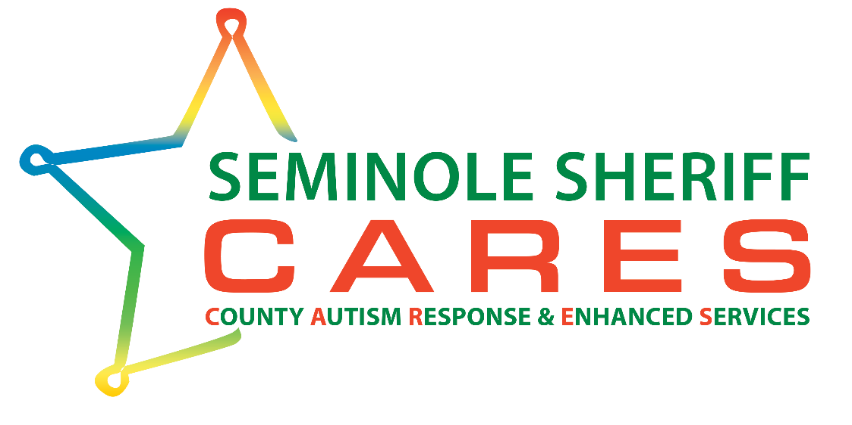Elder Crimes
The Seminole County Sheriff’s Office’s Elder Crimes Unit investigates crimes of abuse, neglect and other related incidents involving seniors and vulnerable adults. The unit works in conjunction with the Department of Children and Families Adult Protective Services and the Office of the State Attorney to ensure criminal prosecution of these crimes. The Seminole County Elder Crimes Unit provides compassion and resources to the elderly and their families during times of need. The Elder Crimes Unit provides and maintains the following programs:
- Lockbox - The Seminole County Sheriff’s Office Lockbox Program was designed to expedite rescue services and minimize costs associated with forced entry into homes in the event of an emergency. The program provides a less intrusive method of entry and is intended to reduce the amount of time before aid can be rendered to the injured. The program is designed for persons who are elderly or disabled adults, who have health conditions that could be potentially life-threatening, and who live alone or spend extended periods of time home alone.
- Lockboxes contain a key to the residence and are secured in an inconspicuous location on the outside area of the home. Access will only be granted to EMS Fire & Rescue and Law Enforcement Officers and may only be used in the event of an emergency.
- Each eligible resident will have to complete a registration form that needs to be notarized and provide a key for the lockbox.
- RUOK – The Sheriff’s Office will call the vulnerable adult each morning at 7 a.m. to check on their well-being. If an answer is not received, a deputy will be dispatched to check on the person.
- K9-Scent Evidence Kit - provides first responders with the scent of a missing/wandering vulnerable person and attempts to create a quicker response time for locating the individual.
 K-9 Scent Evidence Application Form /
K-9 Scent Evidence Application Form /  K-9 Scent Evidence Information Flyer
K-9 Scent Evidence Information Flyer
-

SCSO C.A.R.E.S. Program
The Seminole County Sheriff’s Office is fully committed to providing exceptional services to the Citizens of Seminole county, especially our most vulnerable. The Seminole Sheriff CARES initiative has been created to meet the needs of those individuals who may require special attention when involved in situations with law enforcement. This is a voluntary program, and it is offered to provide the best service possible to our community and to give law enforcement as much information as possible prior to arriving on scene to address the situation in the most positive and professional way possible for all who are involved.
An individual may enroll in the Seminole Sheriff CARES initiative if an individual has any type of confirmed developmental, psychological, or other disability or condition, including but not limited to:
- Autism
- Alzheimer’s Disease
- Asperger’s Syndrome
- Behavioral Disorders
- Cerebral Palsy
- Cystic Fibrosis
- Dementia
- Developmental Delays
- Down Syndrome
- Hearing Impairment
- Immobility
- Cognitive Disorders
- Neurological Disabilities
- Seizure Disorders
- Speech Impairment
- Vision Impairment
 SCSO C.A.R.E.S. Registration Form
SCSO C.A.R.E.S. Registration Form
For more information about these programs please reach out to the Elder Crimes Unit by e-mailing
elderservices@seminolesheriff.org.
Vulnerable Adults & Natural Disasters
The Elder Crimes Unit works with the Emergency Operations Center by identifying elderly citizens and vulnerable adults with special needs during natural disasters. If you are a vulnerable adult and need a special shelter for a natural disaster please visit this link to register for the Seminole County Special Needs Program:
 Seminole County Special Needs Registration Form
Elderly Drivers
Seminole County Special Needs Registration Form
Elderly Drivers
Have you noticed that your loved one seems to be having difficulty driving lately? Perhaps they have received a couple traffic citations or have been involved in a few minor fender-benders in the last several months? Do they seem increasingly confused or even scared when driving? If you’ve noticed a significant decline in your loved one’s ability to operate a vehicle safely, you can request a medical review through the Department of Highway Safety and Motor Vehicles and mail it to the listed address on the form.
 Florida Department of Highway Safety and Motor Vehicles Medical Referral Form
Forms for Older Drivers - Florida Department of Highway Safety and Motor Vehicles (flhsmv.gov)
Florida Department of Highway Safety and Motor Vehicles Medical Referral Form
Forms for Older Drivers - Florida Department of Highway Safety and Motor Vehicles (flhsmv.gov)
Additionally, per
Florida State Statute 322.18(2)(a-b), drivers over the age of 80 are required to have their driver’s licenses renewed every six years, instead of every eight years.
Resources
Florida Department of Elder Affairs
Welcome - Senior Resource Alliance
ADRC Home | Alzheimer's & Dementia Resource Center - Alzheimer's & Dementia Resource Center (adrccares.org)
HOPE Helps – …preventing homelessness through: HOUSING · OUTREACH · PREVENTION · EDUCATION
Longwood & Seminole County Homeless Shelter & Food Pantry | The Sharing Center